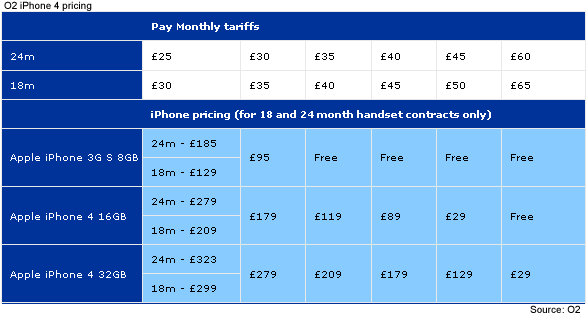It has emerged that US watchdog the Federal Trade Commission (FTC) is launching an official probe into Apple’s practices regarding mobile advertising on the iPhone, to establish whether the Californian firm is unfairly exploiting its power.
June 18, 2010

It has emerged that US watchdog the Federal Trade Commission (FTC) is launching an official probe into Apple’s practices regarding mobile advertising on the iPhone, to establish whether the Californian firm is unfairly exploiting its power.
As the forthcoming iPhone 4 racks up records numbers in pre-orders, Apple has released new developer terms for iPhone and iPad app developers, banning the use of cross platform compiling tools – effectively stopping apps running on multiple platforms – and blocking the AdMob mobile advertising platform.
The move has attracted the suspicions of the FTC, not least because Apple is due to launch its own iAds mobile advertising platform on July 1, but also because the US watchdog recently greenlighted Google’s acquisition of AdMob.
Telecoms.com spoke to an iPhone app developer this week who suggested that Apple’s real motivation for banning AdMob as an advertising platform was because all that data about how the iPhone was being used and by who was going straight to Google, which of course, is pushing a rival mobile platform in the shape of Android.
The developer asked to remain anonymous for fear of reprisal from Apple. “I’ve heard of iPhone app developers having their App Store licence revoked because they spoke out against Apple,” he said.
Omar Hamoui, CEO of AdMob, had his own comment to make on Apple’s move: “These advertising related terms both target companies with competitive mobile technologies (such as Google), as well as any company whose primary business is not serving mobile ads. This change threatens to decrease – or even eliminate – revenue that helps to support tens of thousands of developers. The terms hurt both large and small developers by severely limiting their choice of how best to make money. And because advertising funds a huge number of free and low cost apps, these terms are bad for consumers as well.”
But the terms could also be bad for advertisers, as the anonymous app developer noted: “Apple has set a minimum account spend of $1m for its iAds platform,” effectively limiting the number of advertisers that will be able to adopt the platform in the first place.
Telecoms.com understands that iAds advertisers will not only pay a $10 cost-per-thousand (CMP) rate, but also a $2 click through fee everytime someone clicks on an ad.
Steve Jobs recently said that Apple has iAd commitments for 2010 totalling over $60m, which represents almost 50 per cent of the total forecasted US mobile ad spending for the second half of 2010.
The FTC investigation is also believed to address whether Apple is being anti-competitive by banning technologies such as Adobe Flash CS5 on the iPhone and iPad.
In related news the prices for iPhone 4 hardware are beginning to emerge, with O2 UK being one of the first to publish its prices.

o2-iphone4
About the Author(s)
You May Also Like








.png?width=300&auto=webp&quality=80&disable=upscale)


_1.jpg?width=300&auto=webp&quality=80&disable=upscale)


.png?width=800&auto=webp&quality=80&disable=upscale)